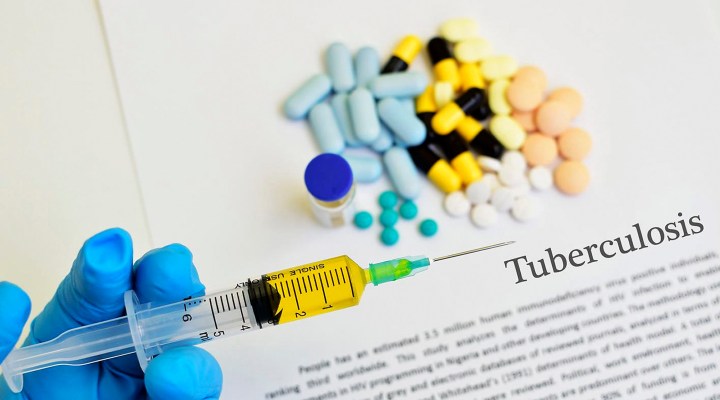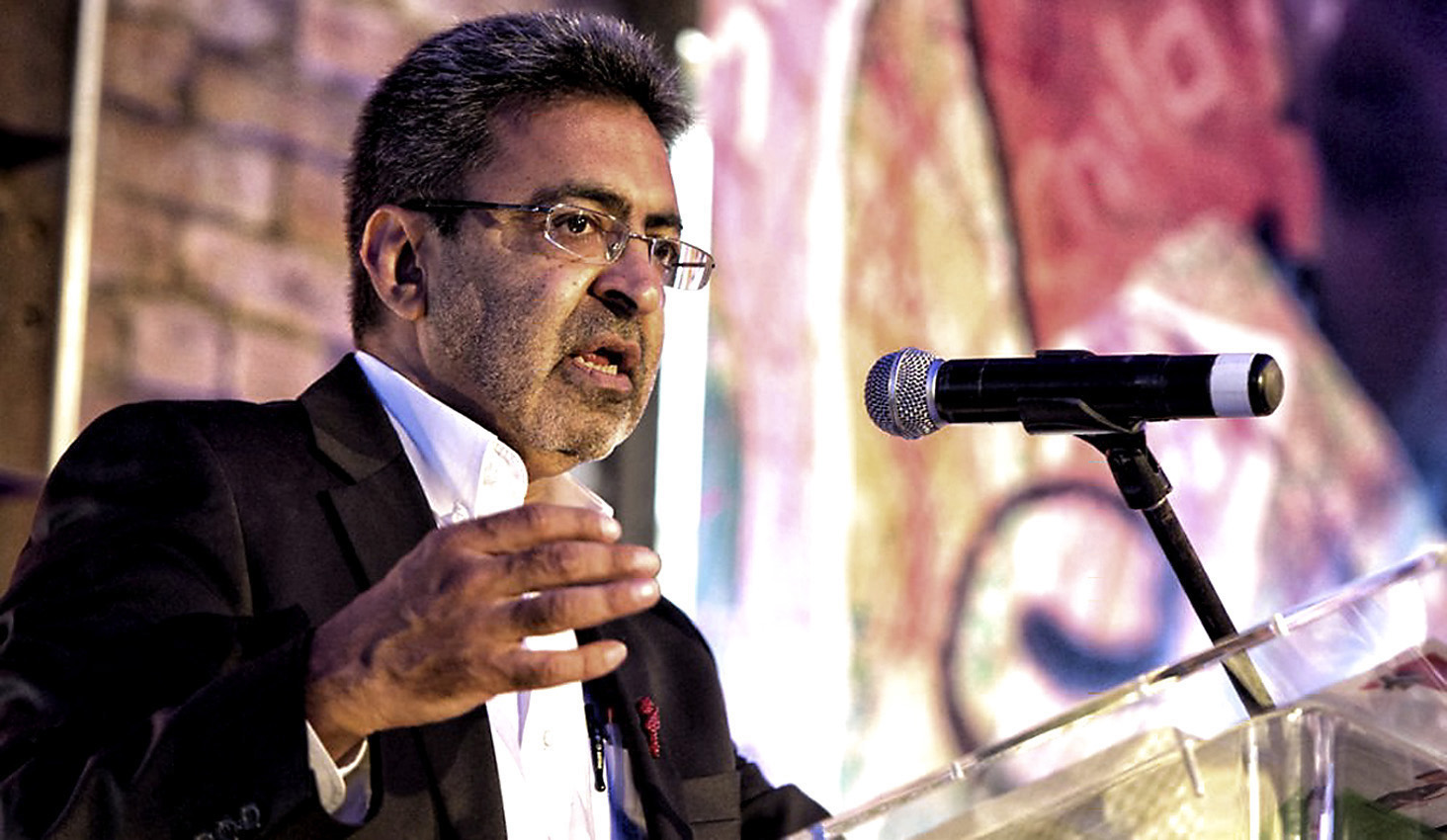SPOTLIGHT
Finding ‘missing persons’ with TB a priority for new National Strategic Plan to combat the disease

The period covered by South Africa’s National Strategic Plan (NSP) for HIV, TB, and STIs 2017-2022 will soon come to an end. Against the backdrop of another World TB Day, Spotlight asked several tuberculosis experts what they think the priorities should be as South Africa develops an NSP for the next five years.
The new National Strategic Plan is being developed in the context of a Covid-19 pandemic that has severely affected the TB response in South Africa and elsewhere.
In South Africa, the impact was particularly clear in a reduction in TB diagnoses in the early months of the pandemic. While TB catch-up plans are in place, it is unclear to what extent those plans are currently being implemented and succeeding.
Better TB data and monitoring

Dr Fareed Abdullah, Director of the Office of Aids and Tuberculosis Research at the South African Medical Research Council, says for him the most important thing to get right in the TB programme is the proper recording of data and monitoring of the programme. (Photo: Supplied by Dr Fareed Abdullah)
Dr Fareed Abdullah, Director of the Office of Aids and TB Research at the South African Medical Research Council (SAMRC) says the most important thing to get right is the proper recording of data and monitoring of the TB programme.
“At the moment the data is not very reliable, and without accurately being able to record the number of cases, the number on treatment, and treatment outcomes, we will not be able to identify the problem areas and improve the management of the national TB programme,” he says.
Abdullah adds that a second priority is to ensure that there is capacity, skills and expertise at the provincial, district and clinic level to implement the TB programme effectively.
Changing diagnostic tactics
Prof Keertan Dheda, critical care specialist and head of the pulmonology division at Groote Schuur Hospital, says enhanced finding of the “missing persons” with TB is important.
“These are undetected or undiagnosed individuals with TB, about a third of whom are infectious and who reside mainly in peri-urban informal housing.
“We also need to find these cases to mitigate the negative impact of Covid-19 on TB. We need to change our diagnostic tactics in terms of the public health strategy by going out into the community to actively look for persons with TB (rather than waiting for them to self-report to our healthcare facilities),” says Dheda.
According to him, these cases could be looked for in TB hotspots and in peri-urban communities, among contacts of those with active TB, in HIV-infected persons, among prisoners and in our own healthcare facilities. Dheda says there are different ways this could be done, including through door-to-door screening or the use of scalable mini mobile clinics.
He says part of the priorities should be addressing the risk factors and key drivers of TB.
“As the old adage goes, prevention is better than cure. Thus, a major focus must be the prevention of TB. At the heart of this must be cross-integration and working across different departments for poverty alleviation.
“The biggest driver of TB in South Africa is poverty and overcrowding, and if this is not addressed through poverty alleviation interventions, then TB will never be controlled or eradicated,” he says.

Professor Keertan Dheda, pulmonologist and critical care specialist who heads the Division of Pulmonology at Groote Schuur Hospital and the University of Cape Town, says enhanced finding of the ‘missing persons’ with TB is important. (Photo: Supplied / Spotlight)
Customised and targeted interventions
Ingrid Schoeman, Director of Advocacy and Strategy at TB Proof (an NGO), says TB-affected communities, civil society organisations and key partners have called on the National Department of Health to implement TB recovery plan interventions to achieve the NSP goal of reaching all vulnerable populations through customised and targeted interventions.
For Schoeman, priorities include “implement[ing] systematic screening guidelines to evaluate people with a cough of any duration (not only people with a cough lasting more than two weeks) for both TB and Covid-19, and to test high-risk groups with Xpert Ultra (irrespective of symptoms). [This includes] people living with HIV, TB contacts and people with a history of TB within the past two years (in keeping with findings on the targeted universal testing strategy),” she says, adding that there should be more effort to test and treat all close TB contacts and other high-risk groups such as people living with HIV with TB Preventive Therapy. (Xpert Ultra is a molecular test used for TB diagnosis.)
Integrate Covid-19 innovations
Prof Martie van der Walt, Director of the Tuberculosis Platform at the SAMRC, stresses that data from South Africa’s first national TB prevalence survey showed a large gap between case notifications and incidence.
“In the period of the previous NSP, a lot of effort went into finding the missing cases. However, due to Covid, many of the gains made in case-finding and bringing incidence down has been largely lost. Going forward, we have to make up the gains lost due to Covid and also do better than we had done prior to Covid,” says Van der Walt.
“We also need to move beyond demonstrating in certain selected sites the mobile chest X-ray vans and computer-aided reading to find asymptomatic cases. Instead of just demonstrating, we need to implement mobile chest X-ray vans and other tools as wide as possible.
“We know these new tools work so we must make it a standard tool in the case-finding approach.”
Van der Walt argues that the focus should be to ensure that many of the innovations developed during Covid-19 are fully integrated into TB care.
“These are, for example, using mobile apps with which people can screen themselves and [using] mobile phones to communicate with patients. The TB programme should change how we interact with patients… issue them with multi-month treatment so that they do not have to come on a monthly basis to clinics for collection of treatment,” she says.

The new National Strategic Plan is being developed in the context of a Covid-19 pandemic that has severely affected the TB response in South Africa and elsewhere. (Photo: cedars-sinai.org / Wikipedia)
Prof Harry Hausler, head of TB HIV Care, also weighed in. He says improved case finding using evidence-based strategies and the rapid implementation of innovations is key.
“Given that 42% of people with TB are not diagnosed or treated in South Africa, evidence-based strategies which help to find more people living with TB and the rapid implementation of innovations are required to improve case-finding.
“These include targeted universal TB testing which focuses on people living with HIV, household contacts of people with TB, and people who have had TB in the last two years,” he says.
“New innovations such as urine lipoarabinomannan tests make it possible to diagnose TB in people living with HIV with low CD4 counts – a group that is often difficult to diagnose using sputum samples but who are likely to be severely affected if they have TB and it is not diagnosed.”
Digital chest X-rays, he says, have been found to be 12 times more effective at identifying asymptomatic TB than screening alone and, therefore, is another important tool to use to find the “missing people with TB”.
Hausler says innovations such as 3HP, which makes it easier to prevent TB among household contacts – including children under five who are at particular risk of being infected – need to be prioritised and rolled out. DM/MC
This article was published by Spotlight – health journalism in the public interest.




















Comments - Please login in order to comment.